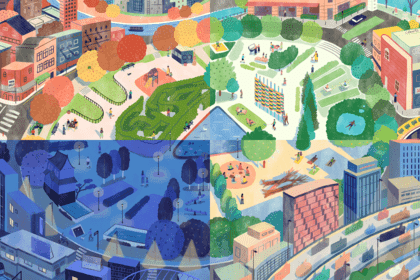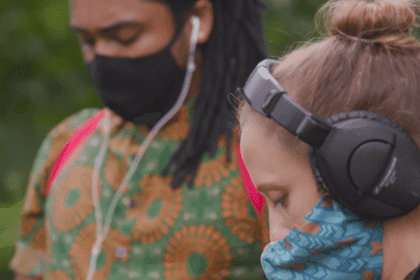
Hamwe Festival 2020
How can the arts help to give new perspectives on, and improve, mental health, social justice and global health?
Pressing play on the video above will set a third-party cookie. Please read our cookie policy for more information.
Injonge Karangwa: We spent the 5 days, particularly the full last day and this one, discussing the role the arts and culture could have in proposing new solutions and new analysis for the mental health crisis that is going on globally.
Miranda Wolpert: One of the things we are really impressed by and why we’re so pleased to be partnering with you is that your programme covers the full range of different sorts of creative endeavour that might give us insights into mental health problems but also give us potential solutions.
Grace Gatera: We should not let the world forget that good we found during this time; that unity; that love for art; that love for music. Instead, we should build up on this.
Tim Partridge: Covid Living came about very rapidly in the spring of this year; really as the realities of life under the Covid crisis were becoming clear.
Commissioner Mitchell Silver: There’s something about being in nature that just really makes you feel better. I tell people don’t take a mental health day, just take a walk in a park.
Ellen Page: It was really overwhelming to think about how one location in a park, one park bench, could have so many different meanings for so many people.
Rebecca Jacobs: And the hope is that by telling stories, and building sharing narratives, we can really change how we understand, address and think about mental health.
Jenevieve Aken: As a photographer, it was more expected of us to document the time and what is happening in a space in the time of the pandemic.
Cait Oppermann: What makes this moment really interesting is that when we look back in 20 years’ time we can really remember what it felt like to experience this. For me it was that I didn’t want to forget.
Nyancho NwaNri: Photography is this really powerful tool that helps to record history or a point of time in history.
Mizue Kobayashi: In Japan the outsider art scene is very much coming from a social welfare background and perspective with organisations themselves seeking artists and talent.
Mary Bitta: What the traditional lens provides is an opportunity to speak to people about mental health using their traditional beliefs and their culture. And what this does is that it actually opens up opportunities to break the barriers of stigma.
Miranda Wolpert: What I’ve been really impressed by is how you have linked both the science and the creative arts and the social equity in such interesting ways and I’ve certainly taken some real takeaways from that.
Dr Ngamije Daniel: The health sector and other disciplines such as education, creativity and others can serve to resolve different mental disorders.
We partnered with the University of Global Health Equity in Kigali, Rwanda, on their online Hamwe Festival.
The festival was held virtually on 11 – 15 November 2020. It is an annual event that celebrates and encourages the contributions of creative industries in the global health field.
Watch the highlights in the film above, or catch up with the talks on the Hamwe Festival website.
About Mindscapes
Mindscapes brings together culture, communities, policy and research, and is informed and inspired by Wellcome's mental health programme.

